Last Thursday United Nations Secretary-General Ban-Ki Moon announced a new set of sanctions against North Korea. The 15-member UN Security Council unanimously recommended the sanctions, which the United States drafted. They are an attempt to starve the Kim regime of foreign cash to try and slow down their nuclear programme.
The resolution mainly focuses on North Korean coal exports, which is their biggest foreign exchange earner. It has placed a sales cap on their exports of US$400.9 million or 7.5 million tonnes, whichever is lowest. That cuts the amount they can earn from coal exports by about 60%.
The Security Council made a point of not introducing sanctions that would hurt the Korean people. Limiting the country’s foreign exchange earnings reduces their ability to buy supplies for their nuclear programme, which is the point.
The new sanctions also ban North Korean exports of copper, nickel, silver, zinc, and statues. Yes, statues! Apparently North Korea has a reputation for building huge statues of communist leaders. There’s a demand for these, mainly in Africa. Who knew?
Speaking in support of the resolution, US Ambassador to the United Nations Samantha Power stated:
In total, this resolution will slash by at least $800 million per year the hard currency that the DPRK [Democratic Peoples’ Republic of Korea or North Korea] has to fund its prohibited weapons programs, which constitutes a full 25 percent of the DPRK’s entire export revenues.
North Korea in 2016
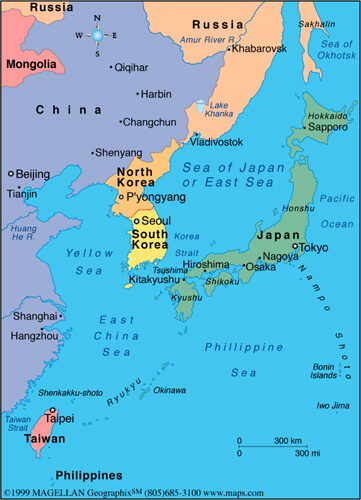 The evidence shows that the capacity and ability of the North Korean weapons and nuclear programmes have steadily increased and improved throughout this year.
The evidence shows that the capacity and ability of the North Korean weapons and nuclear programmes have steadily increased and improved throughout this year.
January
On 6 January, North Korea carried out their fourth nuclear bomb test. They claimed this was also their first detonation of a hydrogen bomb. According to the Arms Control Association, the seismic evidence detected by the Comprehensive Nuclear Test Ban Treaty Organization monitoring stations makes it unlikely this was an H-bomb though. However, it is not clear what type of device it was.
February
On 7 February, North Korea launched what they said was an earth observation satellite. In other words, they launched a missile with a large payload – a payload that could have been a bomb. The BBC says it may have been as large as 500kg. Further, they say “… the range of this new missile may be as much as 13,000km (8,000 miles) …”. That means it could potentially reach the continental United States.
However, the BBC also says:
On the other hand, this missile is not yet a true intercontinental ballistic missile (ICBM). It is a very large missile that must still be put together on a very large, fixed launch pad.
That means that although they are a threat to South Korea and Japan, they have not achieved their ultimate aim of having the ability to attack the continental United States.
March
The United Nations sanctions applied to North Korea last week are not the first new ones this year. As a response to the January test, the UN Security Council unanimously adopted Resolution 2270. New Zealand was a co-sponsor of the resolution with the US and China. The Council’s press release said the following:
The Security Council today condemned in the strongest terms the nuclear test conducted by the Democratic People’s Republic of Korea on 6 January 2016 “in violation and flagrant disregard” of the relevant resolutions, its actions thereby constituting a challenge to the Treaty on Non-Proliferation of Nuclear Weapons (NPT) and to peace and stability in the region and beyond. …
The sanctions included the following:
One: To ensure forbidden goods are not included, all states have the right to inspect cargo transiting through their ports to North Korea.
Two: It is forbidden to provide aviation fuel or rocket fuel of any type to North Korea.
Three: No country can provide any type of specialized education or training to North Korean citizens “in disciplines that could contribute to the proliferation of sensitive nuclear activities or the development of nuclear-weapon delivery systems.”
Four: No country can provide coal, iron, iron ore, gold, titanium ore, vanadium ore, or rare earth minerals.
There were some other sanctions as well, mostly around the travel of named North Korean individuals. They noted that these sanctions had gone “further than any other sanctions regime in two decades …”.
As we now know, they have since gone even further.
April
15 April: From the Arms Control Association website:
North Korea test launches an intermediate-range ballistic missile, the Mususdan, which was not known to have been flight-tested prior to the April 15 launch. The missile test is a failure. The UN Security Council issues as statement condemning the launch as a “clear violation” of existing Security Council resolutions.
23 April: South Korea reports that North Korea tested a KN-11 submarine launch ballistic missile (SLBM). According to them it flew about 30 kilometres, then exploded. The UN Security Council issued a press release condemning the launch the next day.
28 April: North Korea tests two more Mususdan missiles, both of which failed.
May
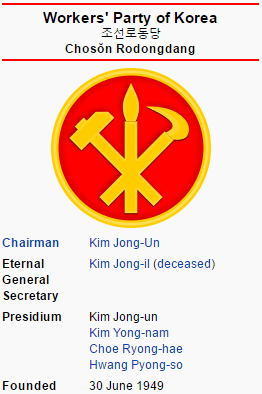
(Source: Wikipedia)
On 6-9 May, the Workers’ Party of Korea (WPK – the ruling political party) held it’s seventh congress. (The sixth was in 1980.) In 2010 the party changed its preamble, which expresses the aims of the party, from “building a communist society” to Songun, or a military-first outlook. At the May Congress Kim Jong-un, perhaps in response to the repeated condemnatory statements from the United Nations, said North Korea:
… will not use a nuclear weapon unless its sovereignty is encroached upon by any aggressive hostile forces with nukes, as it had already declared.
As former US Defense Secretary William J Perry says in the interview below, North Korea is not suicidal. They are, however, extremely paranoid and they isolate themselves from the international community, which exacerbates this. They plan to be ready for the attack they believe is coming.
Ominously, 38 North, a United States/South Korea think tank on North Korea, announced on 13 May that they had detected “… an increased level of activity at the Punggye-ri Nuclear Test Site visible in commercial satellite imagery” over the past month. However, the activity was not enough for them to consider a test to be imminent.
Further, North Korea made another intermediate-range Mususdan missile test on 30 May. It failed.
June
North Korea held two more intermediate-range Mususdan on 21 June. One was successful and flew approximately 400 kilometres. The other exploded after about 150 kilometres. They are clearly learning.
The UN Security Council held an emergency session the next day to discuss the tests and on 23 June put out a press release. North Korea was condemned in the strongest of diplomatic language but no further steps were taken. They re-stated their commitment to solving the problem through diplomacy.
July
There was a bit of a diplomatic disaster in July. For the first time, the United States, separate from the United Nations, announced sanctions against Kim Jong-un. They were a reaction to the long-term record of human rights abuses perpetrated by the government on its citizens. As usual in the case of US sanctions, it was the US Treasury Department that announced them. They named Kim Jong-un directly responsible for the abuses and also penalized ten other top officials.
However, a few hours earlier, Pyongyang announced it was willing to talk denuclearization. The problem is, no one noticed. This was part of their statement:
The denuclearization being called for by the DPRK is the denuclearization of the whole Korean peninsula and this includes the dismantlement of nukes in south Korea and its vicinity. …
The United States, which is attempting to realize its ambition to invade our Republic at any cost by maintaining its nuclear superiority, and the puppet gang that has been completely following it, should seriously reflect on their past riddled with the crimes of systematically obstructing our struggle for the peace and denuclearization of the Korean Peninsula, before they talk about somebody’s nuclear abandonment.
Instead of blabbering about the North’s unilateral denuclearization, while absurdly blaming us for making nuclear threats and provocations, they ought to take the path of using their own hands to untie the nuclear knot they made by their actions. That path should start with the complete elimination of the source of nuclear threats and blackmail against us, not with the North’s denuclearization first.
Their whole position is almost exactly the same as it was in 1992. The difference now is, of course, that they actually have nuclear weapons. Perhaps progress could have been made at this point if North Korea had spoken out even a couple of days earlier. However, there’s no doubt Kim deserves to be called out for the human rights abuses he carries out.
August
On 3 August North Korea successfully fires a Nodong medium-range missile. It splashed down about 200 kilometres from Japan, just within her economic exclusion zone.
Three weeks later (24 August) they have another successful test. This time they fire an SLBM KN-11. It reportedly flew around 500 kilometres before splashing down in the open ocean.
September
Three missiles were fired simultaneously on 5 September. Each travelled about 1,000 kilometres before splashing down.
The nuclear test signaled by the increased activity at the test site first seen in April/May is carried out. This is North Korea’s fifth nuclear test and measured 5.0 on the Richter scale.
October
There are two failed tests of Mususdan missiles. They occurred on the 14th and 19th and both exploded shortly after lift-off.
The Arms Control Association reports:
U.S. Director of National Intelligence James Clapper says that “the notion of getting the North Koreans to denuclearize is probably a lost cause” and that nuclear weapons are North Korea’s “ticket to survival.”
November
North Korea conducts two more medium-range missile tests. Both fail.
The United Nations Security Council convenes to discuss the new sanctions with which this post began.
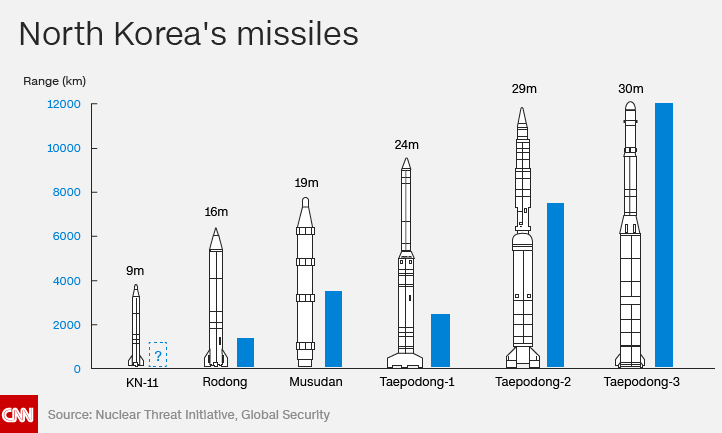
Christiane Amanpour’s Interviews Former US Defense Secretary William Perry
CNN’s Cristiane Amanpour interviewed former US Defense Secretary William J Perry about the most recent sanctions. As she points out, back in 2006 he advised his government to make a pre-emptive strike on North Korea’s nuclear programme. He and Ash Carter (current Defense Secretary) jointly made the following statement back then:
Should the United States allow a country openly hostile to it and armed with nuclear weapons to perfect an intercontinental ballistic missile capable of delivering a nuclear weapons to US soil? We believe not.
(Ash Carter also made a similar recommendation in relation to Iran that year in a report for the Carneige Endowment for International Peace.)
Perry states that the United States is operating on the false premise that North Korea would be willing to give up their nuclear weapons. I think he’s right about this. The entire international community takes the same position. In the past, every time North Korea has shown herself willing to negotiate, she takes the food aid she demands and desperately needs, then reneges on every promise.
However, what other options do politicians and diplomats really have other than to attempt negotiation? The only other choices are ignoring the problem completely or military action. Of the three, diplomacy is surely the best bet, especially now that North Korea has nuclear weapons.
Because North Korea has nuclear weapons, Perry is no longer in favour of a preemptive strike. Although they are not yet able to realize their goal of attacking the United States, they could do untold damage to both South Korea, Japan, and the surrounding oceans.
What Does North Korea Want?
Perry’s opinion is that Kim Jong-un has three goals:
1. Preserve the Kim dynasty.
2. Gain international recognition.
3. Improve their economy.
Indeed, as described by Reuters, “North Korea rejected the resolution as yet another conspiracy masterminded by the United States to deny its sovereignty.” This speaks to Perry’s second point.
Perry believes that if the international community used those goals as objectives, progress could be made with the help of China. Perry said:
We have to accept North Korea as it is and not as we would wish it to be.
I think this is perfectly reasonable. After all, the US is allied with Saudi Arabia, and the UN put Saudi Arabia in charge of their Human Rights Committee. It seems they can accept anything.
The Effectiveness of Sanctions
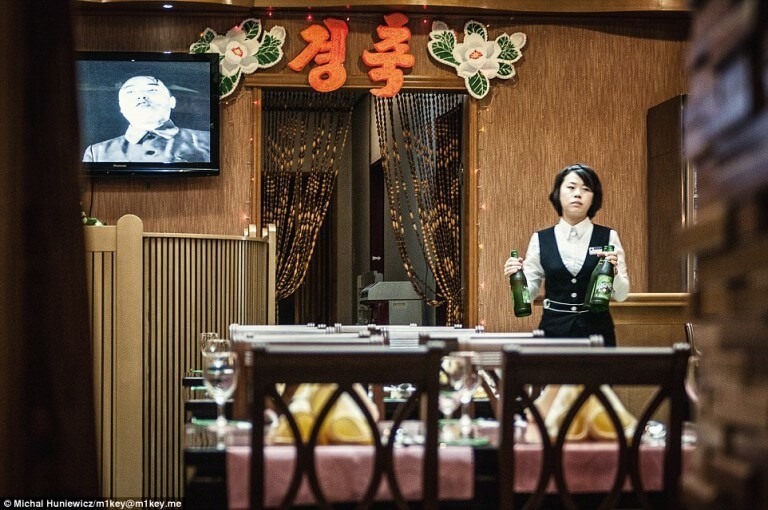
In 2015 photographer Michael Huniewicz went to North Korea. The Daily Mail published 30 of the illegal photographs. This one is entitled ‘A Waitress Works in a Restaurant While 24/7 Propaganda Plays on Television’. (See bottom of post for link.)
It is clear that sanctions are not working against North Korea. The regime constantly subjects their people to pro-government propaganda and their people are therefore willing to make great sacrifices on behalf of their Dear Leader.
Perry pointed out that in only one case have international sanctions worked to bring a country to the negotiating table in relation to their nuclear weapons. That was Iran. There were four big differences with Iran though.
1. The people of Iran are not cut off from the rest of the world. Internal propaganda thus has a limited effect.
2. Iran had not developed a nuclear weapon. Thus, stepping back is easier for them.
3. The government of Iran was not prepared to make their people suffer to the extent that Kim Jong-un is.
4. The economy of Iran is much more integrated into the international economy. Therefore, sanctions had a greater effect.
This last point is significant. China, although they agree to all the sanctions in the UN Security Council and sign off on them, they do not always comply. They do not ignore the sanctions completely, but there is some trade that goes on that shouldn’t.
Mostly though, the world has looked the other way, and there is a good reason for this. If North Korea is ever going to be made part of the international community, it will be with the help China. They are the only country that has some influence there and they have an ongoing relationship with North Korea. Their help has been invaluable in dealing with North Korea in the past, and it will continue to be in the future.
And Donald Trump may have just deliberately destroyed the delicate diplomatic balance.
This is Why Everyone Wanted Trump Kept Away From International Diplomacy
Trump’s Taiwan Phone Call
Donald Trump recently accepted a congratulatory phone call from the prime minister of Taiwan, Tsai Ing-wen. Initially, no-one even knew whether it was she who called Trump or vice versa.
Raw Story reported that it was Trump that called the prime minister of Taiwan. It is probable that it was actually prime minister Tsai Ing-wen that called him though, as stated by Trump. What no one said at the time is that it is also likely that the call was arranged some time in advance.
The President of Taiwan CALLED ME today to wish me congratulations on winning the Presidency. Thank you!
— Donald J. Trump (@realDonaldTrump) December 3, 2016
In an interview with CNN’s Anderson Cooper on 2 December, Kellyanne Conway objected to people wanting to know about the “private conversations of the president-elect.” Vice-president elect Mike Pence took a similar line, saying the call was “no big deal.” Like their boss, they seem to think that the rules do not apply to Trump.
Donald Trump can no longer have “private conversations” with other world leaders. He can have secret conversations, but not private ones. He should always involve someone from the State Department to provide briefing advice and take notes. This is not some kind of imposition designed to get at Trump – it is best practice and the usual situation.
Conway stated that Trump was reading briefings before taking phone calls, but the State Department has confirmed on several occasions that Trump has taken no briefing from them.
Conflict of Interest
Trump did not make his tax returns available during the election and this continues to be a problem. We do not know if he has business interests in Taiwan, but local media in Taiwan report that someone from the Trump organisation was there in September. It seems the Trump Organization may be looking to build an international resort there. No one seems to know, and the people of the US should know because of the potential for conflict of interest.
In the same region, we already have the situation where the Philippines named Donald Trump’s business partner a special envoy to the United States.
The Diplomatic Situation
The United States has a One China policy, which means it doesn’t officially recognize Taiwan as an independent state. China considers Taiwan to be a rogue province, and to appease China the United States broke off official diplomatic relations with Taiwan in 1979. The Reagan administration strengthened ties with Taiwan, but that stopped when he left office. There is still considerable unofficial contact, but all administrations have avoided official contact for some time.
Like North Korea, the Taiwanese crave international recognition. According to CNN, the official line in Taiwan is that the Trump phone call represented “historical dialogue.”
Trump Advisors are now Changing the Narrative on Taiwan
In recent days, the story on the Trump phone call with the Taiwanese prime minister has changed. All of a sudden it’s become a brilliant diplomatic tactic and part of a new strategy. The truth, in my opinion, is that Trump’s new advisors are taking advantage of the situation to push their policy ideas.
The Washington Post reports:
At the Republican National Convention in July, Trump’s allies inserted a little-noticed phrase into the party’s platform reaffirming support for six key assurances to Taiwan made by President Ronald Reagan in 1982 — a priority for the Taiwan government. Also written into the 2016 platform was tougher language about China than had been in the party’s platform in its previous iteration four years ago.
“We salute the people of Taiwan, with whom we share the values of democracy, human rights, a free market economy, and the rule of law,” the platform said, adding that the current documents governing U.S.-Taiwan relations should stand but adding, “China’s behavior has negated the optimistic language of our last platform concerning our future relations with China.”
Yates, who helped write that portion of the platform, said Trump made clear at the time that he wanted to recalibrate relationships around the world and that the U.S. posture toward China was “a personal priority.”
About the same time, Navarro, one of Trump’s top economic and Asia advisers, penned an op-ed saying that the United States must not “dump Taiwan” and needs a comprehensive strategy to bolster what he termed “a beacon of democracy.”
Trump’s acceptance of a call from the Taiwanese prime minister enables anti-China and pro-Taiwan advisors to push their agenda.
Fantasy versus Reality
From a moral standpoint, it is my opinion is that the United States and the rest of the international community should be siding with Taiwan rather than China. Their democratically elected government has proven itself capable of running their affairs for some time. I think the Republicans are right on this.
However, life isn’t that simple. In Reagan’s time, China represented 2% of the world’s GDP. They now account for 16%. They’re just not as easy to ignore these days.
Factors That Must Be Taken Into Account
There are other factors that mean China’s position has to be taken into account whether we like it or not:
1. As mentioned above, the international community needs China as a go-between with North Korea. This is now more important than ever. North Korea has a new, young and more aggressive leader. In addition, she now has nuclear weapons.
2. China is now one of the most significant players in the world’s economy, and their actions can have a positive or negative effect on the rest of the world. Steel dumping destroyed that industry elsewhere. Their move to renewable energy and decreased demand for coal is the main reason for the collapse of the world coal market. (That one’s a good thing long-term in my opinion.) Trump himself refers to the effects of China’s currency manipulation.
3. China owns about $1.2 trillion of US debt. This is less than it was in the past as they sold much of it in 2015, but it is still around 7% of national debt. Only Japan owns more.
4. China is a permanent member (one of the so-called P5) of the UN Security Council. As such, China’s support is needed to pass resolutions. China is politically close to Russia, another P5 member. Just this week, China supported Russia in blocking a resolution for a temporary cease-fire in Syria. The Russians likely would have blocked it anyway and that would have been enough to prevent it. However, China joining them may have been a diplomatic signal about their displeasure over the Trump phone call.
5. The takeover of the Spratly Islands in the South China Sea.
China in the South China Sea
China has taken advantage of the strangle-hold they have on the US. Their expansion into the South China Sea is a disgraceful violation of international law. However, resolving this situation is going to take some skillful diplomatic manoeuvering. That includes maintaining a good relationship with China.
The creation of a new island by China in the Spratly Islands. (Source: New York Times.)
- April 2014
- September 2014
- November 2014
- December 2014
- February 2015
- March 2015
- April 2015
- September 2015
Making America Great Again
President Barack Obama signaled a shift of focus to the Pacific early in his administration. This was partly to counter the growing influence of China in the region. The events in the Middle East have prevented him doing that fully. Donald Trump needs to recognize the importance of the region to the future of the United States. So far he appears not to be doing that.
Donald Trump says the US isn’t respected worldwide, and that that’s Obama’s fault. According to Gallup surveys, respect for US leadership has increased internationally since Obama’s election. Most countries around the world supported Clinton over Trump in the recent election.
There are many reasons to oppose China diplomatically, politically and economically. However, they are a significant power in world affairs and there is much that the US and China need to work together on. One is climate change, another is North Korea.
Donald Trump thinks the way to go is to get tough. Those he has picked to support him so far seem to share that view. I hope he’s right because if not, nuclear war is on the cards.
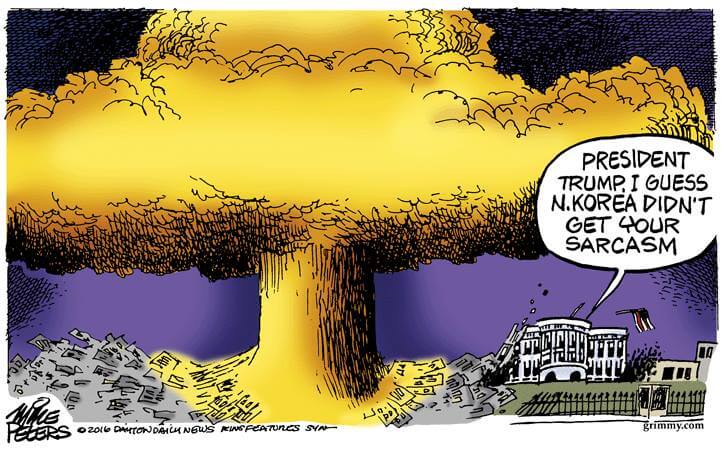
This is a link to photos taken in North Korea by David Huniewicz. It struck me how painfully thin everybody looks.
FYI: New Zealand’s Relationships with China and Taiwan
New Zealand does not have an embassy in Taiwan and vice-versa, but we have an extensive relationship including an economic cooperation agreement. They are our 8th largest export market and 16th largest source of imports. See here for more information.
We have full diplomatic relations with China and a free-trade agreement since 2008. They are our biggest export market. Our government also makes hypocritical diplomatic moves in order to appease China. See here for more information.
If you enjoyed reading this, please consider donating a dollar or two to help keep the site going. Thank you.

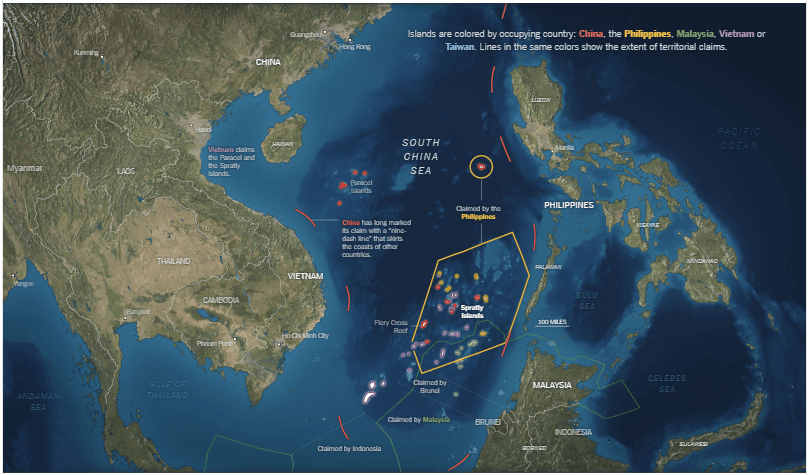
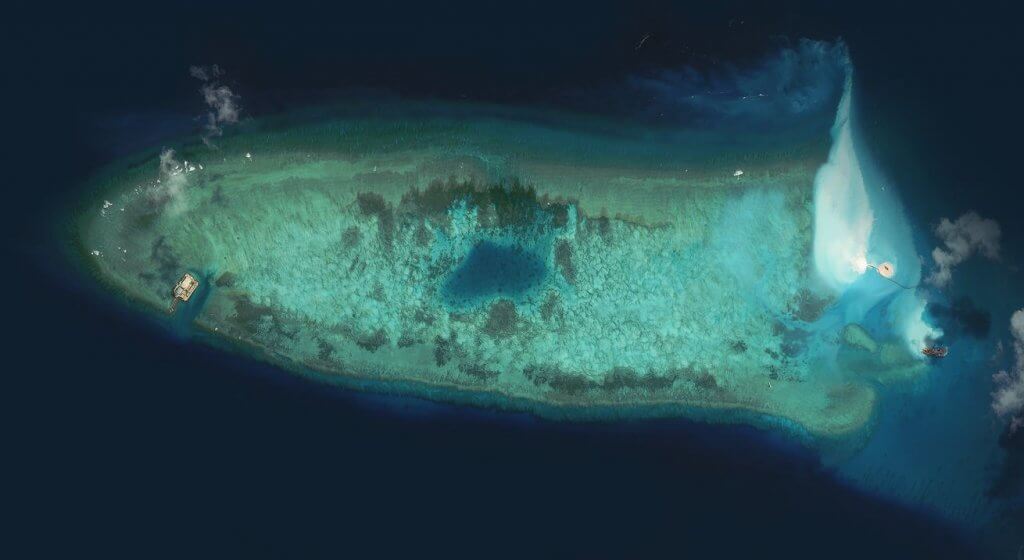
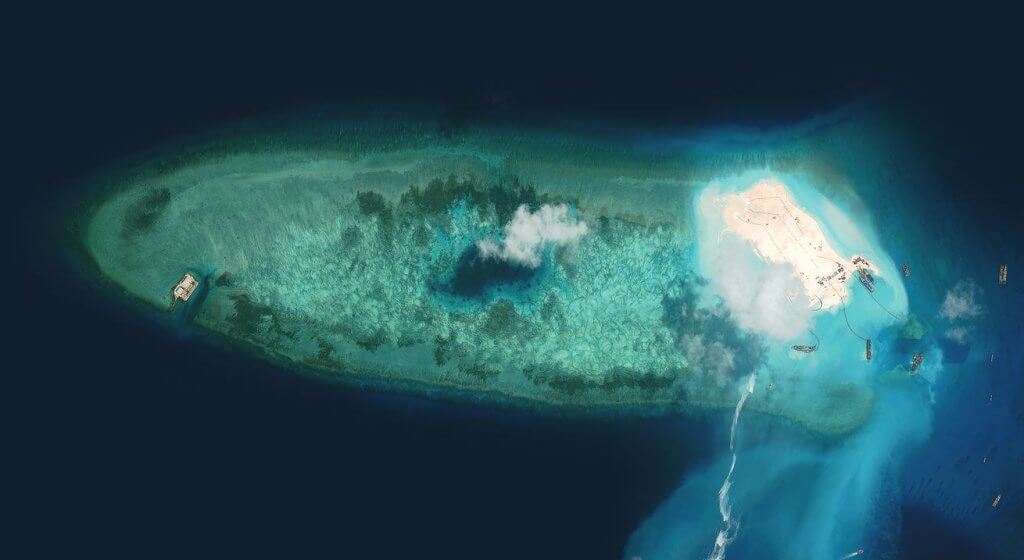
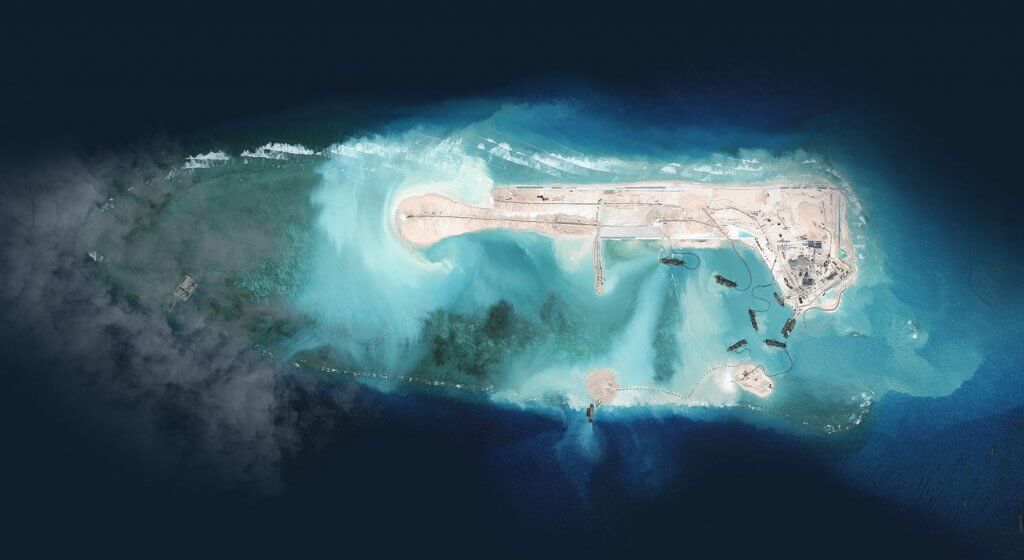
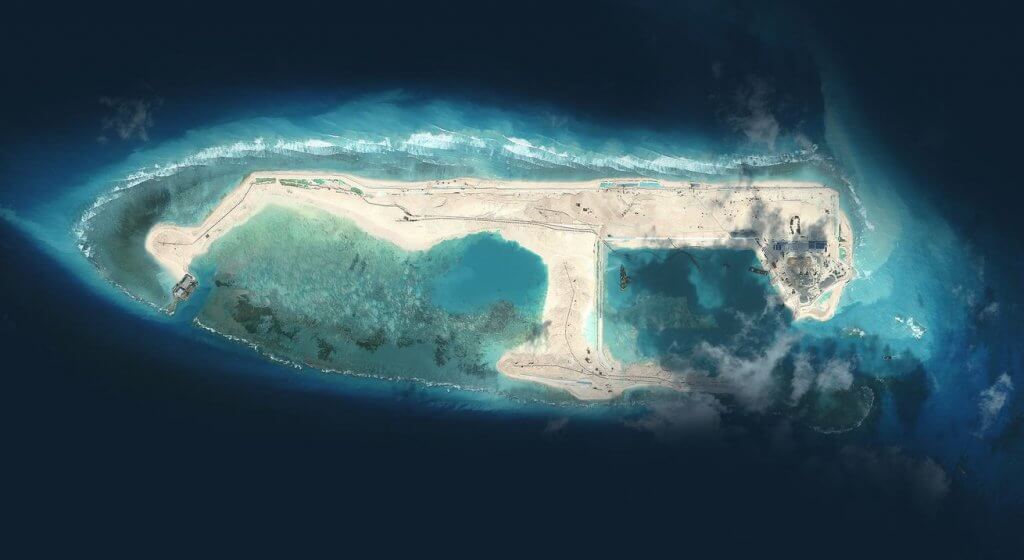
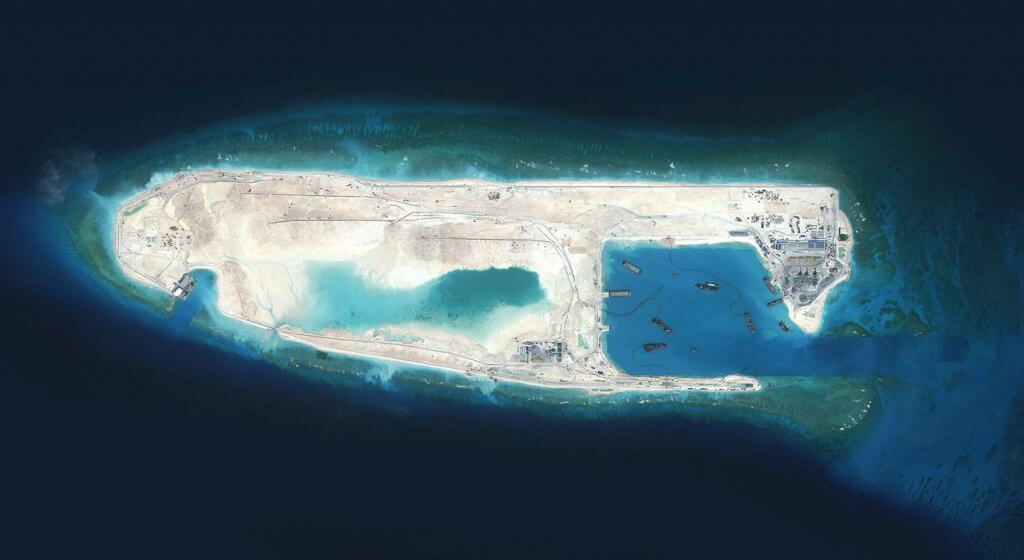
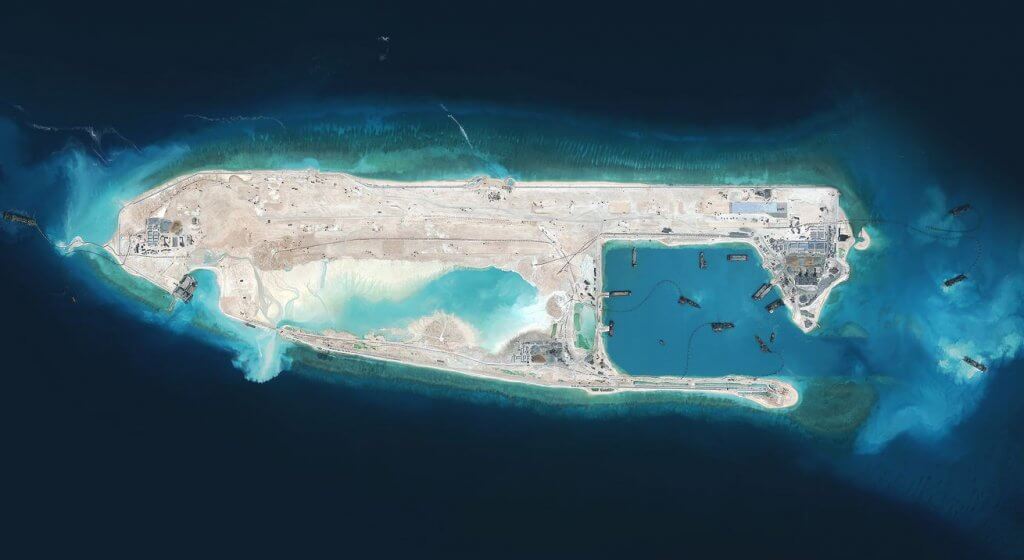
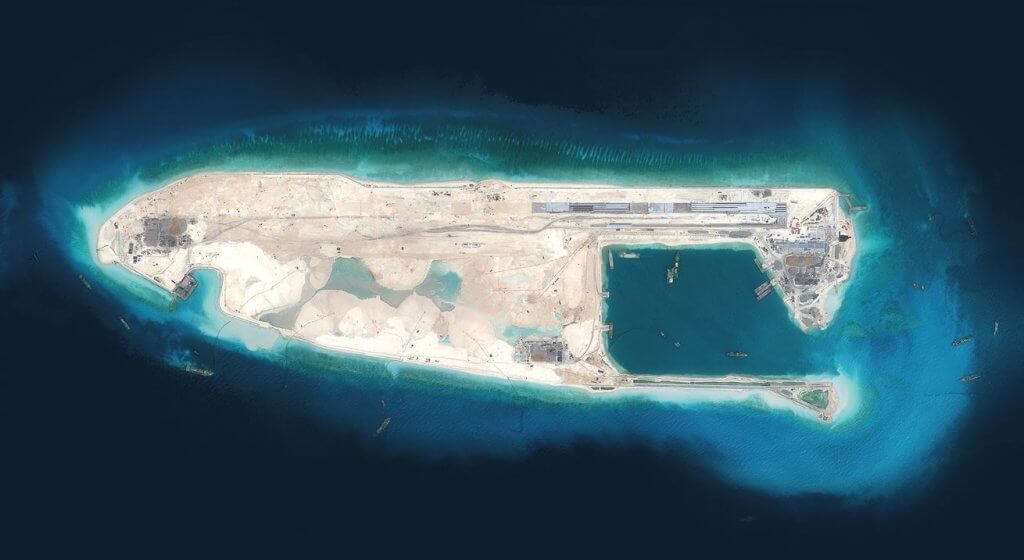
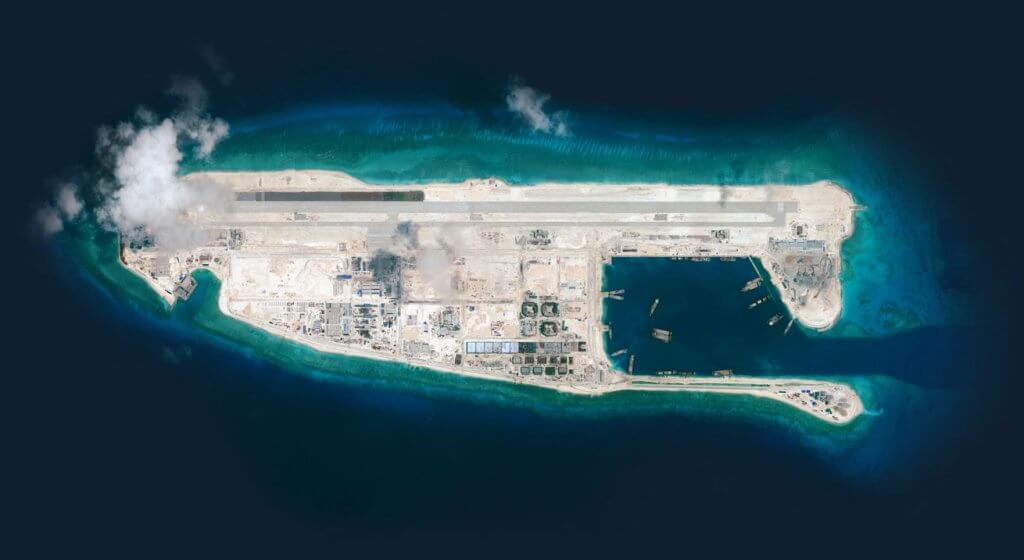
Thank you, Heather, for your cogent analysis. As one who is forced to live under the tyranny of “The Stupid”, the results of this election have been terribly frightening. Perhaps none moreso than this, although there are many areas of concern.
Thanks BigBillK. You’re not the only one who is frightened though – I feel the same. Trump’s election will have consequences for the whole world, and they could be catastrophic. I really hope his bark is worse than his bite on a whole range of issues.
I hope too. But his activity so far does not leave much room for that hope. One thing I am a bit surprised at is that most of Trump’s appointment choices are religious conservatives, creationists and nut jobs. I’ve never heard anything about Trump that suggests he himself is particularly religious and I’d never have guessed he would recruit so many hardcore believers.
More directly on topic, very good summary of N. Korean activities over the past year and why US/China relations are so important and delicate. In several ways I think N. Korea is the biggest problem the rest of the world has.
Because no one really knows what’s going on there we don’t pay them a lot of attention, but they have the potential to come bursting on the scene in my very scary ways.
Yes, I had hoped too that the Trump soup (appropriate term here) would not be served as hot.
But his systematically appointing of would be Ayatollahs and ‘nut jobs’ (the distinction is not really all that clear, take eg DeVos or Carson) is a source of trepidation indeed.
Maybe I’m a bit flippant and short-sighted, but short of an actual invasion of NK, I think military picadillos are just that.
I know, never underestimate your enemy, but even if that feudal militaristic slave state could produce a delivering missile I hardly see them as a serious adversaries in international warfare outside Korea itself.
Trump and Kim are both unpredictable and unstable. A war could happen by accident. Just this evening he’s gone on a Twitter rant against a union leader who showed on CNN that Trump’s fudged how many jobs he’s saved at Carrier. Apparently there are hundreds of people who thought their job was safe, and got their hopes up, and they’ve now found out they’re losing their jobs after all because Trump added some jobs to the number saved that were never going in the first place. Another bald-faced lie to make himself look good. As soon as the interview was over, Trump was attacking the bloke on Twitter.
And Trump’s supporters are saying it’s fine to treat people like this, because they’re opponents. The bastard is a bully of the worst kind. We’ve just had a guy shooting up a pizza place because of fake news put out by Trump supporters. People like Megyn Kelly got serious death threats and had to have security guards because he attacked her. Now he’s doing it to a guy in Indiana.
I’ve got no problem with Trump tweeting, but he is responsible for the safety of all USians, not just the ones who like him.
When I say N. Korea may be one of the biggest problems for the rest of the world I don’t mean just military capabilities and intent. I mean everything from humanitarian concerns, to politics & trade, to espionage (which they aren’t too shabby at).
But even just regarding military capabilities, N. Korea has the ability to cause serious problems over a much wider area than the Korean peninsula. They have some nuclear capability. As Heather has outlined in this article they have some capability to deliver such weapons short, medium and long range, and are steadily making progress at improving those capabilities. With nuclear weapons you only need a small number, even one, to cause a globe spanning shit storm that ends up costly millions of deaths and or seriously damaged lives (likely mostly N. Korean). And though their leadership may not be suicidal at least some of it is genuinely nuts and, even more scary, very unpredictable.
I have the impression that some Taiwanese would like to see full independence from China. Trump may be their opportunity. But why? In Trump’s world there are white, black and brown people. He pretends to only like some of the white people. What benefit is there for Trump to make some of the brown people mad and making others happy?
Perry is correct that North Korea is not suicidal, but North Korea is unpredictable. North Korea is not going to have a problem handing a device to someone else to set off somewhere in the world. And President Sociopath is not going to be able to compute a rational response. We are so screwed.
That’s exactly what I think Kevin – you’ve got my almost 4,000 words down to two sentences! 😀
Yikes…I didn’t know how far along N. Korea has come re. their missile/nuclear program. Thanks (I think) for the enlightenment.
Those photos are really freaky. I can’t imagine living in an Orwellian state like that. How does a place like N. Korea even exist in the 21st century? I watched a documentary on how S. Korea treats refugees from the North and it was sad. The S. Koreans treat their Northern counterparts with extreme prejudice. I would think they would take them in with open arms and blame the government for its threats, not the people escaping.
The disaster of Trump is just beginning to unfold. Every single day reveals some kind of craziness. The world just doesn’t seem sane to me anymore, and it’s impossible to escape…like some terminal disease with no cure. The optimist in me says “it will all get better in 4 years,” but the realist in me casts doubt on that assumption.
I saw a documentary like that too – maybe the same one. It was awful. One of the North Koreans I noticed in particular had got himself out of being brainwashed that the Kims were gods, but felt he was now being forced to believe in the Christian God. He didn’t want to tell them it felt the same as being made to believe in the Kims because they were the only people who were helping him.
This is another video about escapees from North Korea. It’s good imo.
https://youtu.be/WbCo46dtki8
Yeah, I think it was the same doc; I remember the refugee finding no distinction between Kim and Jebus. Thanks for the link as well (I haven’t watched it all yet, but so far so interesting)…how do you find all this pertinent info? You rock!
Thanks Mark. 🙂
Actually, I’m a bit like Donald Trump – I spend a lot of time watching cable news! ;-D
I looked at the picture collection, and one thing I noticed immediately is the low level of human activity. Compared to pictures from cities in other countries, the streets of Pyongyang are practically deserted. The restaurant and store have no customers. If you check out Google Maps views of North Korean locations, the streets look like small-town American on a Sunday in the 1950s – no traffic, little evidence of human activity. In the well-known photo of Earth at night, North Korea is almost as dark as Antarctica. I can only imagine the human potential that’s being stifled there.
This is scattershot, belated, and too lengthy, but some might find some of the links worth investigating. I’d intended to comment on this post when it was first posted — again, an excellent overview of the situation re No. Korea — then I went back into my files and started tripping on some videos about No. Korea that I’d archived and got lost in them, as I always do, because they’re so strange, compellingly so. For good or ill (probably for ill), I gravitate toward the strange and bizarre, and No. Korea tops the list. I find it difficult to stomach the political implications and the human rights abuses, but that doesn’t mean that I’m not keenly aware of them, In fact, I do come to contemplate them, but through the lens of the strange and bizarre.
For instance, this video of little North Korean children playing guitar https://www.youtube.com/watch?v=gSedE5sU3uc is, as the Youtube caption says “creepy as hell.” These kids, they look to me to be about 5 years old — are they really having fun or have they just been programmed out of fear? Those guitars are as big as they are. And what retribution would befall a little kid if he or she hit a wrong note? Here are some videos of kids singing https://www.youtube.com/watch? v=xohK0z0PgZQ, and https://www.youtube.com/watch?v=IPSTY6DfjP4. (More videos in the queues) All of these children are frighteningly precocious. If only their precocity could be freely developed and exercised according to their desires and inclinations. Numerous videos of life in No. Korea, authorized and clandestine. Then there are the videos of their amazing pageants.
I find it quite interesting to go to No. Korean news sites http://rodong.rep.kp/en/ and kcna watch https://kcnawatch.co/, which are exceedingly interesting precisely because of the source. Every No. Korea watcher should regularly check out these sources. Even in translation, one gets the full blast of the propaganda, the language and framing. Fascinating. For instance, here’s one titled
“Stupid Act of Colonial vassals”
http://rodong.rep.kp/en/index.php?strPageID=SF01_02_01&newsID=2016-12-07-0007.
There used to be videos available on a dedicated Youtube channel but the channel has been taken down. However, one can still find plenty of great propaganda videos online, such as this one where Kim Jong-Un visits a bottle factory https://www.youtube.com/watch?v=sYvpcn4MDMg
Also there are several books and films out about No. Korea — accounts of escape from the country, life in their prison camps. One amazing story, now filmed, is about the So. Korean actress and film director who were kidnapped by Kim Fatty the Third’s father, Kim Jong-Il. https://en.wikipedia.org/wiki/The_Abduction_of_Shin_Sang-ok_and_Choi_Eun-hee. I refer to Kim Jong-Un as Kim Fatty the Third because I read that it’s used as a derisive moniker in China.
Here’s a site I just came across https://nkleadershipwatch.wordpress.com/
I’m going down the rabbit hole too – there’s so much fascinating stuff – I just read this one: http://rodong.rep.kp/en/index.php?strPageID=SF01_02_01&newsID=2016-12-10-0006
Imagine any other govt in the world putting out a press release like that? I went to a Red Cross international youth conference when I was 17 back in 1980. There was a young guy from South Korea there then in tears because of his family in North Korea that he couldn’t see. I’ve never forgotten him (obviously!).
Those kids – it’s so sad. They must have been playing for years and really intensively to be that good. I just imagine their skin – it’s so soft at that age and there must have been a lot of pain and bleeding that the poor things suffered as they learned to play. They’re not using picks. That’s just cruel, and child abuse. And they’re probably the lucky ones. To look good for an international audience they’ll at least get fed properly for example.
What a crock that news release is. The No. Korean government perpetrates a cult of victim culture. Oh, and “The DPRK has so far kept the door open for overseas Koreans including those in the U.S. to visit their dear homeland any time and taken every sincere compatriotic measure to ensure their meetings with their families and relatives as desired by them.” Really! Straight to prison they go, if they do manage somehow to get in the country.
Yeah, those poor children. They’re playing guitars and singing and dancing and smiling like hell to save their very lives. Their exceptional talent is a curse and a blessing. One wrong move and they and their entire familiy could be sent to one of those ghastly gulag camps for life. That’s why everybody in the country is always clapping, clapping, clapping when Dear Leader is around. If you don’t clap, or if you nod off, it’s off to prison camp with your family (guess they do care about keeping families intact in that regard).
It’s too bad that the No. Korean TV station, Korean Central Television (KCTV) lost its Youtube channel for some violation of terms. It was fascinating. You might be able to get it through another source (is it called a “server”?), but I wonder how safe from hacking and viruses another source would be. You can find individual clips of older KCTV news reports on Youtube, but not the livestream.
The pictures referenced at the last link (anonews.com) are interesting to look at and people do appear to be thin. The comments section though really slams the write up and the extent to which these photos might be illegal (which per most commenters they aren’t). I don’t know what the real restrictions are there so I’m not sure. I will say that someone has linked to the author’s profile (not the person who took the pictures) and she has some, ummm, interesting hobbies.
She advertises for free lance writing services (claims over 500 published articles) but also sells holistic nutrition services and intuitive card readings. She also sells an E-book “5 Steps You MUST Learn To Succeed As A Spiritual Entrepreneur!” So while I believe the photographs are real, the underlying truth of the text is in question to me.
Well, Trump is a loose cannon, North Korea is seen as unpredictable and China is potentially capable of being provoked. Wow!
Hmmm. I have a concern that North Korea (DPRK) having a practice of bluff and brinkmanship could make an error of judgement and accidentally move into the suicidal category. In this event other countries would have to find a way out that saves face for the DPRK.
I bet that Trump’s enlightened advisers are counselling him to be super careful – hope he heeds this advice.
I hope he does too. I don’t have that much confidence in some of his advisors though. I’m really worried about General Michael Flynn, and there are a lot of virulently anti-China people in his administration. Others are more pragmatic and reliable – I just hope those are the ones he listens to.